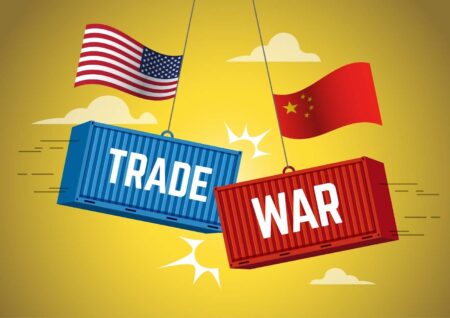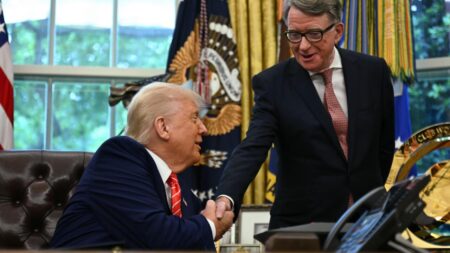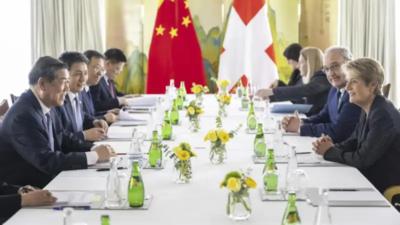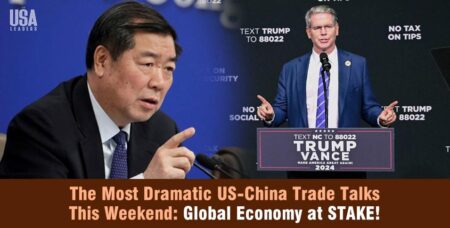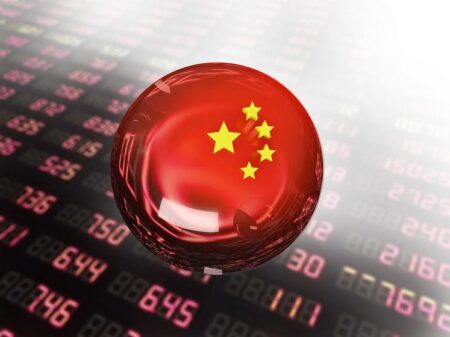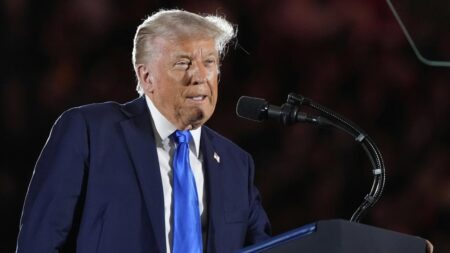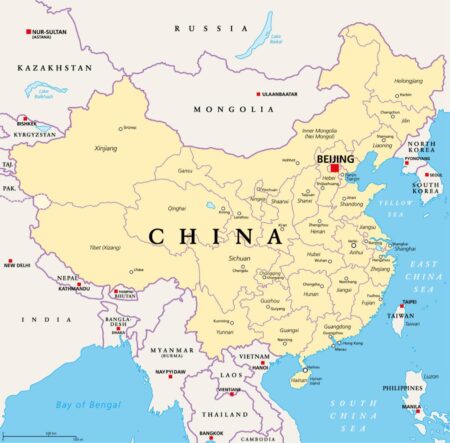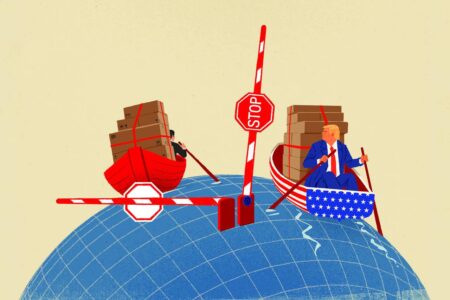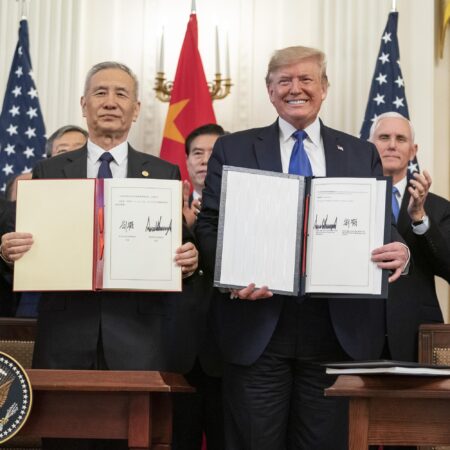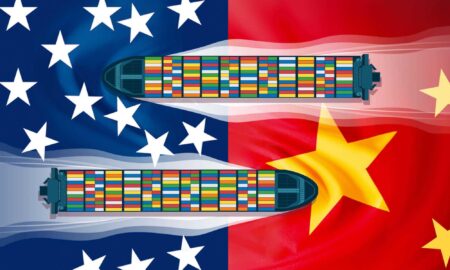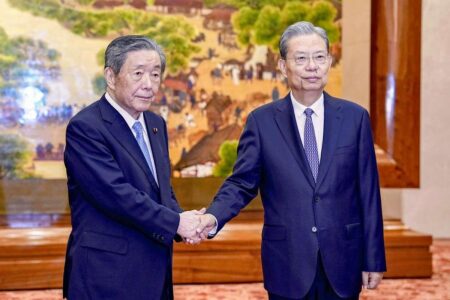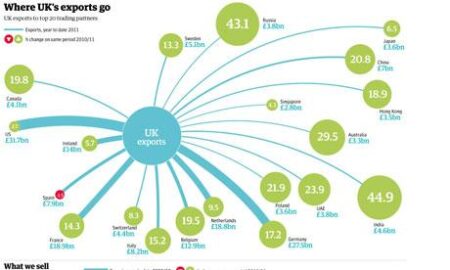France has revealed that talks with China regarding a long-standing cognac dispute have hit a roadblock, marking a significant setback in the quest to ease trade tensions. This impasse raises alarm bells for the French spirits industry and could impact exports, leaving many wondering what the future holds for this iconic beverage.
Browsing: global trade
In a bold strategic shift, David Tepper’s Appaloosa Management has dramatically scaled back its investments in China, anticipating the rising tide of trade tensions between the U.S. and China. This proactive decision underscores a heightened awareness of market volatility and the looming regulatory challenges that could impact future growth.
As the trade war intensifies, its impact is being felt even at backyard grills nationwide. With tariffs on steel and aluminum pushing up the prices of grilling equipment and packaging, summer barbecues are becoming more expensive than ever as meat prices soar. Get ready to fire up those grills with a little extra caution this season!
As conversations heat up, the U.S. and U.K. are moving closer to sealing a robust trade deal. Central to these discussions are tariffs, digital trade, and agricultural standards—critical elements that both nations are eager to enhance in order to fortify their economic partnership in the wake of Brexit.
US Trade Representative Katherine Bessent announced exciting news, revealing “substantial progress” in the ongoing trade talks with China. She emphasized significant advancements in crucial areas like tariffs and market access. These discussions showcase a strong commitment to finally resolving the long-standing trade tensions that have impacted both nations.
This Saturday in Geneva, the US and China are gearing up for pivotal trade talks that promise to thaw years of economic tension between the two powerhouse nations. With optimism in the air, both sides are eager to explore ways to rejuvenate their trade relationship and tackle those pesky tariffs head-on.
China is now looking to Canadian and Australian wheat suppliers as soaring temperatures take a toll on its own crop yields. Traders highlight that this strategic pivot not only reflects China’s proactive approach to ensuring food security but also showcases the growing impact of climate challenges on agricultural production
China is ramping up its investments in Moroccan factories, fueled by the country’s prime location and rich mineral resources. This strategic move not only aims to strengthen trade relations but also to elevate production capabilities, positioning Morocco as a vital manufacturing powerhouse in Africa.
Former President Donald Trump is gearing up to unveil a groundbreaking trade agreement with the UK, heralding a potential transformation in transatlantic relations. This ambitious deal seeks to strengthen economic connections and could redefine trade dynamics in the wake of Brexit. Stay tuned for more exciting details!
Despite U.S. sanctions designed to limit China’s access to cutting-edge semiconductor technology, new reports reveal that the nation is still managing to acquire Nvidia equipment through intricate supply chains and third-party intermediaries. This development has sparked significant concerns about the potential for technology proliferation
As trade tensions reach a boiling point, Trump’s trade war with Canada is sending shockwaves through the U.S. economy, sparking unexpected repercussions. With the stakes higher than ever, anticipation builds for the upcoming meeting between Trump and former Bank of England Governor Mark Carney.
In a bold statement, former President Donald Trump declared that the U.S. doesn’t need a formal trade deal to thrive. He pointed to the successful partnerships between the UK and India as shining examples of how effective trade relations can flourish even without direct U.S. involvement
Westpac Banking Corp has unveiled a lackluster profit report, leading to a dip in its share prices. This revelation comes as the bank raises alarms about escalating global trade risks. The announcement not only reflects worries about economic stability but also shakes investor confidence across the financial sector.
China’s trade war narrative has taken a dramatic turn, placing former President Trump in the spotlight. This shift not only scrutinizes his economic policies but also raises critical questions about his approach to international relations. As tensions continue to rise, political analysts are buzzing with speculation about how this could impact the upcoming 2024 election
Japan’s lawmakers have raised an urgent alarm, cautioning that U.S. tariffs on Japanese products could jeopardize regional security, especially amid escalating tensions with China. They emphasize the critical importance of collaboration to effectively counterbalance China’s growing dominance in the Asia-Pacific region.
In an exciting development, China has officially welcomed Brazilian wild caught seafood into its market! This strategic shift in sourcing aims to diversify suppliers and meet the surging global demand for seafood. With this move, Brazil is set to emerge as a significant player in the industry, bringing fresh opportunities and flavors to tables around the world.
China’s budget-friendly parcels are about to face new duties, shaking things up for both consumers and sellers alike. This policy change is designed to create a fairer competition for local products, but it could also mean that shoppers who depend on those wallet-friendly imports might see their costs rise
Air France KLM Cargo has kicked off the year on a high note, reporting an impressive first quarter that highlights a robust recovery in demand and operational excellence. With significant boosts in cargo volumes, the airline is demonstrating renewed confidence in the air freight market, even as global challenges persist.
In a powerful counter to U.S. protectionist measures, the UK and EU have unveiled a dynamic joint declaration championing “free and open trade.” This bold initiative highlights their unwavering dedication to multilateral economic collaboration, aiming to fortify relationships in the face of global uncertainties.
Trump’s trade war with China has thrust Japan into a challenging dilemma, compelling the nation to carefully balance its relationship with its crucial ally, the U.S., and its main trade partner, China. With tariffs on the rise, Japanese businesses are grappling with uncertainty as they strive to preserve their competitive edge in an increasingly volatile market.



